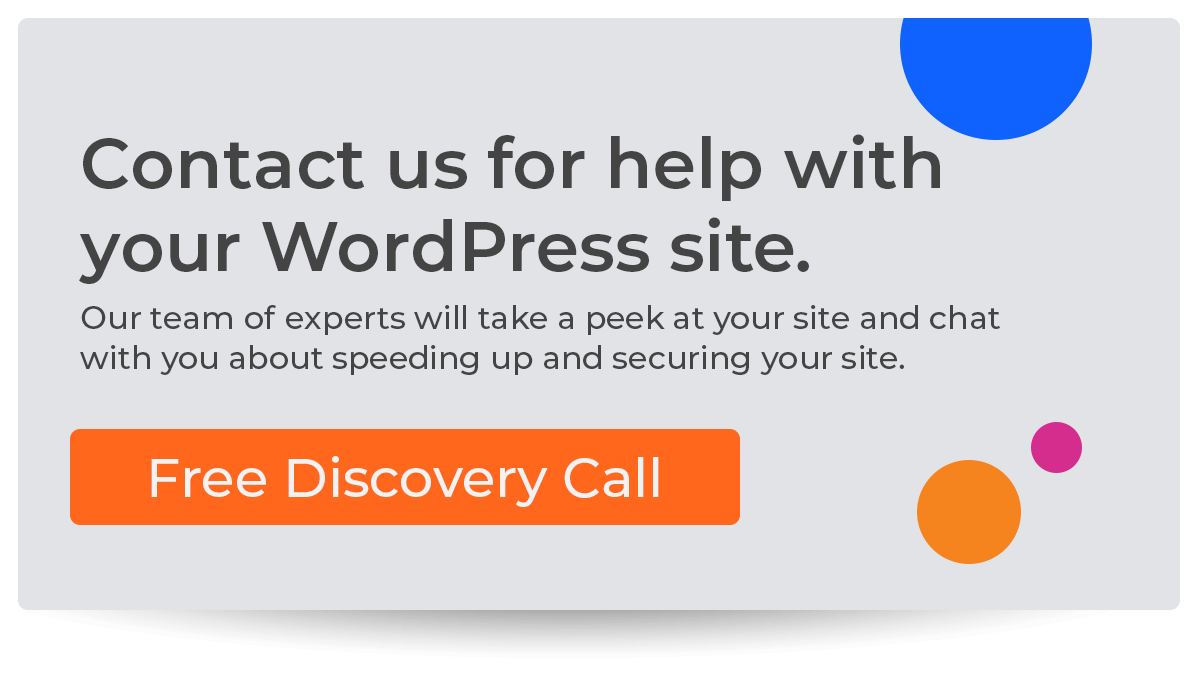Your website's security is a critical priority amid the ever-present threat of hackers and cybercriminals. Protecting your online presence requires a multifaceted approach that encompasses various security measures. From enforcing robust authentication mechanisms to keeping software up to date, this article delves into the essential practices that fortify your website against unauthorized access, data breaches, and malicious activities.
Discover the vulnerabilities of commonly targeted websites, learn about the best security practices, understand the role of SSL certificates, and explore the impact of clearing website data on overall security. By embracing these measures, website owners can confidently navigate the dynamic cybersecurity landscape, reducing the risk of falling prey to the ever-evolving tactics of cybercriminals.
How do I make sure my website is secure?
Website security is paramount, as hackers and cybercriminals constantly seek vulnerabilities to exploit. Ensuring the security of your website involves adopting robust measures that safeguard against unauthorized access, data breaches, and malicious activities. You must focus on several key aspects to ensure your website is secure.
Implementing strong authentication mechanisms is essential. One fundamental way to achieve this is by enforcing complex passwords for all user accounts. Encourage users to choose passwords that combine uppercase and lowercase letters, numbers, and special characters.
Additionally, consider implementing multi-factor authentication (MFA), which requires users to provide two or more forms of identification before accessing their accounts, which can include entering a password along with a unique code sent to their mobile device or email address.
Another crucial aspect of website security is keeping all software up to date. Including the content management system (CMS) you use and any plugins, themes, or extensions integrated into your website.
Regularly check for updates released by the developers and promptly install them, as they often address newly discovered vulnerabilities and provide patches to strengthen security protocols. Conducting regular vulnerability assessments and penetration testing on your website is necessary.
Vulnerability assessments involve scanning your website's codebase and configuration for potential weaknesses that hackers could exploit. Penetration testing takes it further by simulating real-world attack scenarios to identify any vulnerabilities that may have been missed during the assessment phase.
By following these practices diligently, you can significantly enhance the security posture of your website and reduce the risk of falling victim to malicious actors seeking unauthorized access or sensitive data breaches. However, it's important to remember that maintaining an adequately secure website requires ongoing effort and vigilance as new threats emerge constantly in the digital realm.
What website gets hacked the most?
We live in an era where cyber threats are becoming increasingly sophisticated, and websites have become prime targets for hackers. Understanding which websites are most vulnerable can help us understand the tactics employed by hackers and allow us to take proactive measures to protect our websites.
E-commerce platforms are among the most frequently hacked types of websites. These platforms deal with sensitive customer information, including credit card details and personal data.
Hackers target e-commerce sites to gain access to this valuable information, which they can sell on the dark web or use for malicious purposes themselves. The popularity and widespread use of e-commerce platforms make them attractive targets for hackers seeking maximum impact.
Content management systems (CMS) also rank high on the list of frequently hacked websites. CMS platforms like WordPress, Joomla, and Drupal power millions of websites worldwide, making them ripe targets for hackers looking for widely-used software vulnerabilities.
Website owners need to understand that maintaining regular updates and security patches is crucial to maintaining a secure CMS platform. Failure to update regularly exposes websites using these systems to known vulnerabilities that hackers can easily exploit.
In addition to these common types of targeted websites, other factors contribute to a website's vulnerability. The overall security posture of a website depends on various factors such as inadequate password strength or management, lack of secure hosting providers, outdated software versions or plugins/modules/themes with unpatched vulnerabilities, insecure file permissions and configurations, lack of encrypted connections (HTTPS), insufficient network security measures, and poor user education regarding phishing attacks or social engineering tactics used by hackers.
Understanding which websites are most frequently hacked allows website owners and administrators to prioritize their efforts in securing their online presence effectively. Taking proactive measures such as regular updates and patches for CMS platforms and implementing strict security protocols will significantly reduce the risk of falling victim to hacking attempts.
What is the best security for a website?
In the ever-evolving landscape of cybersecurity, it is crucial to implement the best security measures to protect your website from potential hackers. While there is no one-size-fits-all solution, several critical security practices can significantly enhance your website's protection against malicious attacks.
First and foremost, implementing a robust web application firewall (WAF) is paramount. A WAF acts as a protective shield between your website and potential threats, filtering out malicious traffic and preventing unauthorized access.
It analyzes incoming web requests, detects patterns associated with attack vectors such as SQL injections or cross-site scripting (XSS), and blocks them in real-time. A reliable WAF should provide adequate protection and regular updates to counter emerging threats.
Adopting robust authentication mechanisms is essential to fortify your website's security. Implementing multi-factor authentication (MFA) adds an extra layer of protection by requiring users to provide multiple forms of identification before granting access.
Typically, this includes something the user knows (like a password), something they have (like a unique code sent to their mobile device), or something they are (such as biometric data like fingerprints or face recognition). By implementing MFA, even if an attacker obtains a user's password through phishing or other means, they would still need additional credentials to gain unauthorized access.
Furthermore, regularly updating all software components that power your website is integral to maintaining its security integrity, including the content management system (CMS) and all plugins, themes, and other extensions used.
Outdated software often contains known vulnerabilities that hackers can exploit effortlessly. By promptly installing updates and patches released by CMS providers and third-party developers, you mitigate the risk of falling victim to attacks targeting these vulnerabilities.
Employing encryption technology through SSL/TLS certificates ensures secure communication between your website and visitors. Encrypting data in transit with robust encryption algorithms like RSA or AES and SSL/TLS certificates prevents eavesdropping and tampering with sensitive information such as login credentials and credit card details.
This level of protection is especially crucial for websites that collect user data or engage in e-commerce activities. Many reputable certificate authorities offer SSL/TLS certificates at various prices, allowing you to choose one that suits your website's specific needs.
Combining these best security practices increases your website's resilience against hacking attempts. However, it is essential to recognize that the threat landscape continues to evolve, necessitating constant vigilance and proactive measures to protect your website and its users' data.
Does clearing website data prevent hackers?
Clearing website data is undoubtedly an essential step in the overall security process when protecting your website from hackers. However, it is crucial to understand that clearing website data alone does not protect against hackers completely. Clearing website data means deleting cookies, cache, and browsing history from a user's browser.
While this helps remove potentially sensitive information stored on the user's device, it does not directly impact the security of your website. One of the reasons why clearing website data is recommended is to prevent attackers from gaining access to a user's login credentials or personal information if their device gets compromised.
Users reduce the chances of anyone obtaining these sensitive details by regularly clearing cookies and cache. Additionally, since some attacks rely on exploiting vulnerabilities within outdated or cached versions of websites, deleting such data can limit potential avenues for attackers.
However, it is essential to note that determined hackers are skilled at finding alternative methods to breach websites irrespective of cleared browser data. To enhance your website's security further and guard against hacking attempts effectively, you should implement comprehensive measures beyond just relying on users clearing their browser data.
These measures include implementing strong authentication protocols such as two-factor authentication (2FA), regularly updating and patching software vulnerabilities on your server and content management system (CMS), deploying web application firewalls (WAFs) to filter out malicious traffic, conducting regular security audits and penetration testing, using secure coding practices when developing your site, and encrypting sensitive information transmitted between users and servers using SSL/TLS certificates. By combining these proactive steps with educating users about the importance of clearing their browser data regularly, you can significantly bolster the overall security posture of your website.
How much does an SSL certificate cost?
When it comes to ensuring the security of your website, one crucial aspect is obtaining a Secure Sockets Layer (SSL) certificate. An SSL certificate encrypts the data exchanged between your website and its users, providing a secure connection. Many website owners wonder about the cost of obtaining an SSL certificate, and it's essential to consider various factors influencing the price.
The cost of an SSL certificate can vary depending on several factors, including the type of certificate you choose, the level of validation required, and the provider you opt for. There are different types of SSL certificates available in the market, including Domain Validated (DV), Organization Validated (OV), and Extended Validation (EV) certificates.
DV certificates are typically the most affordable option as they require only basic verification of domain ownership. OV certificates undergo more extensive validation processes, ensuring greater trustworthiness for your website.
EV certificates provide the highest level of validation by verifying domain ownership, legal existence, and identity details. Naturally, this increased level of authentication comes at a higher cost.
Moreover, different SSL certificate providers offer varying price ranges based on the features they provide alongside their certificates. These additional features may include warranties that protect against certain security breaches or assistance with installation and troubleshooting.
It's important to compare prices from different providers while considering their reputation regarding reliability and customer support. Additionally, some providers offer multi-year subscriptions or packages that might lower costs in the long run compared to annual renewals.
When determining how much an SSL certificate will cost for your website's security needs, it is essential to consider factors such as the type of certificate required and additional features provided by different providers. While pricing can vary significantly based on these factors, investing in a reputable SSL certificate is crucial for maintaining user trust and safeguarding sensitive information exchanged on your website.
What makes a website not secure?
One of the key factors that can render a website insecure is the absence or poor implementation of a robust password policy. Weak passwords that are easily guessable or commonly used can make it incredibly easy for hackers to gain unauthorized access to your website's backend.
Enforcing strict password requirements, such as a minimum length and a combination of uppercase and lowercase letters, numbers, and special characters, is crucial. Additionally, regular password updates and two-factor authentication can add an extra layer of security to prevent unauthorized access.
Another factor that contributes to an insecure website is outdated software and plugins. Operating systems, content management systems (CMS), and various plugins often release updates that address security vulnerabilities discovered over time.
You need to update these components regularly to ensure your website resists attacks from hackers who exploit known vulnerabilities. Implementing a regular update schedule is vital to stay on top of software updates.
Furthermore, removing unnecessary or unused plugins decreases the potential attack surface and reduces the risk of exploitation. Moreover, insecure coding practices can make websites vulnerable targets for hackers.
Poorly written code with insufficient input validation and sanitization opens up possibilities for injection attacks such as SQL injection or cross-site scripting (XSS). These attacks allow hackers to execute malicious code on your website or manipulate data in unintended ways.
To mitigate these risks, developers should follow secure coding practices such as input validation, output encoding, parameterized queries for database interactions, and using security libraries provided by frameworks where applicable. Furthermore, the lack of proper access controls poses another threat to the security of a website.
Unauthorized users gaining access privileges beyond their intended scope can lead to data breaches or system compromise. Implementing role-based access controls ensures that each user has only the necessary permissions based on their responsibilities within the organization.
Several factors make a website insecure: weak password policies increase vulnerability against brute force attacks; outdated software provides opportunities for exploiting known vulnerabilities; insecure coding practices create openings for injection attacks, and inadequate access controls can result in unauthorized access. By addressing these areas of weakness, website owners can significantly enhance their website's security posture and reduce the risk of falling victim to malicious activities carried out by hackers.
Protecting your website from hackers requires a multi-layered approach that involves implementing various security measures and staying vigilant. Following the steps outlined in this article can significantly reduce the risk of your website being compromised. Ensuring your website is up-to-date with the latest security patches and software updates is crucial.
Regularly monitoring for vulnerabilities and promptly applying patches will help prevent hackers from exploiting known weaknesses. Investing in a reputable web application firewall (WAF) can provide additional protection by filtering out malicious traffic before it reaches your website.
Furthermore, educating yourself and your team about common hacking techniques and best practices for secure coding can go a long way in preventing attacks. Regular security audits and penetration testing will help identify potential vulnerabilities that need to be addressed.
It is also important to regularly back up your website data so that even if an attack occurs, you can quickly restore a clean version of your site. While protecting your website from hackers in today's digital landscape may seem daunting, it is a manageable task.
By implementing strong security measures, staying proactive with updates and monitoring, educating yourself about potential threats, and regularly auditing your site's security posture, you can minimize the risk of falling victim to cybercriminals. Remember that safeguarding your online presence is essential for the success of your business or personal brand; with dedication and diligence in maintaining a secure website environment, you can confidently navigate the web, knowing that you have taken significant steps towards protecting yourself from hackers.



